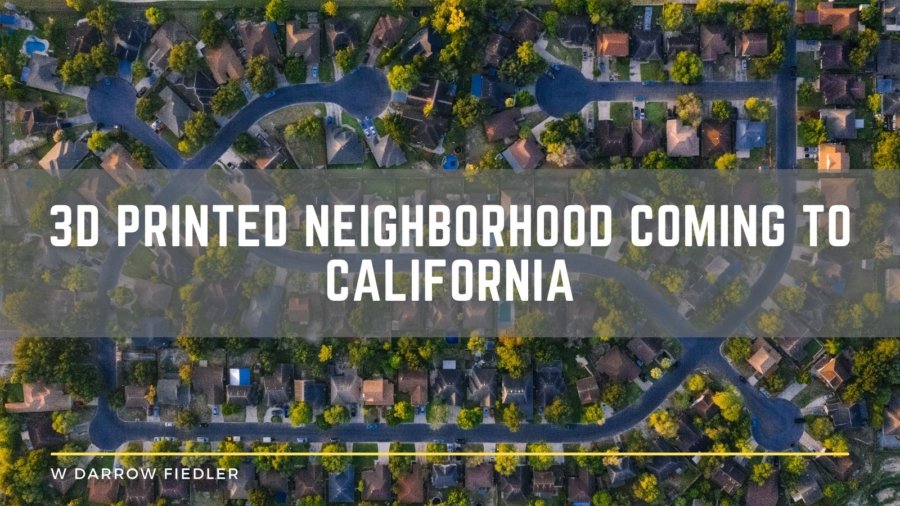There is no doubt that technology and industry will continue to evolve in many forms. Many futuristic sectors are currently being developed. Initiatives such as the robotic and the internet of things are becoming more and more of a factor.
Another industry that is emerging very quickly is the 3D Printing industry. 3D printing is emerging in various aspects of society. It has become abundantly clear that 3D printing has become a part of the housing industry as well.
As hard as it is to believe, there is a desert in California set to become a neighborhood constructed entirely via 3D printing.
In this piece, we are going to examine this fantastic occurrence in greater depth.
The location of this potentially historic neighbor good will be the Coachella Valley. Thanks to a partnership between an organization specializing in sustainable real estate development and a construction technology firm, 5 acres of land will become a community of 15 3d-printed houses.
The construction technology firm is named Mighty Buildings. Mighty Buildings considers this project as a realized fulfillment of its vision for the housing industry’s future.
Mighty Buildings is based in Oakland and specializes in creating homes with the use of 3d printers that are pretty sizable.
The material used by the construction company is designed to harden instantaneously. Thus, roofing and insulation can be done in one seamless process.
Mighty Buildings can automate 4/5th of the home construction process while achieving cost savings in manpower. Their approach allows environmental waste to be significantly reduced.
According to the company’s chief sustainability officer, Mighty Buildings can build a 350 square foot home in a day.
The 3D-printed homes will have a modern look. All homes will be 1450 square feet and will consist of three bedrooms and two bathrooms. Also, each home can have another 2 BR/1 BA residence on the premises.
Each home will have a pool in the backyard. Individuals can opt for amenities such as hot tubs and fire pits.
Prices for the primary 3 BR/2 BA 3d-printed home start at $595,000. If one opts for a two-home setup with enhancements, the price is $950,000.


